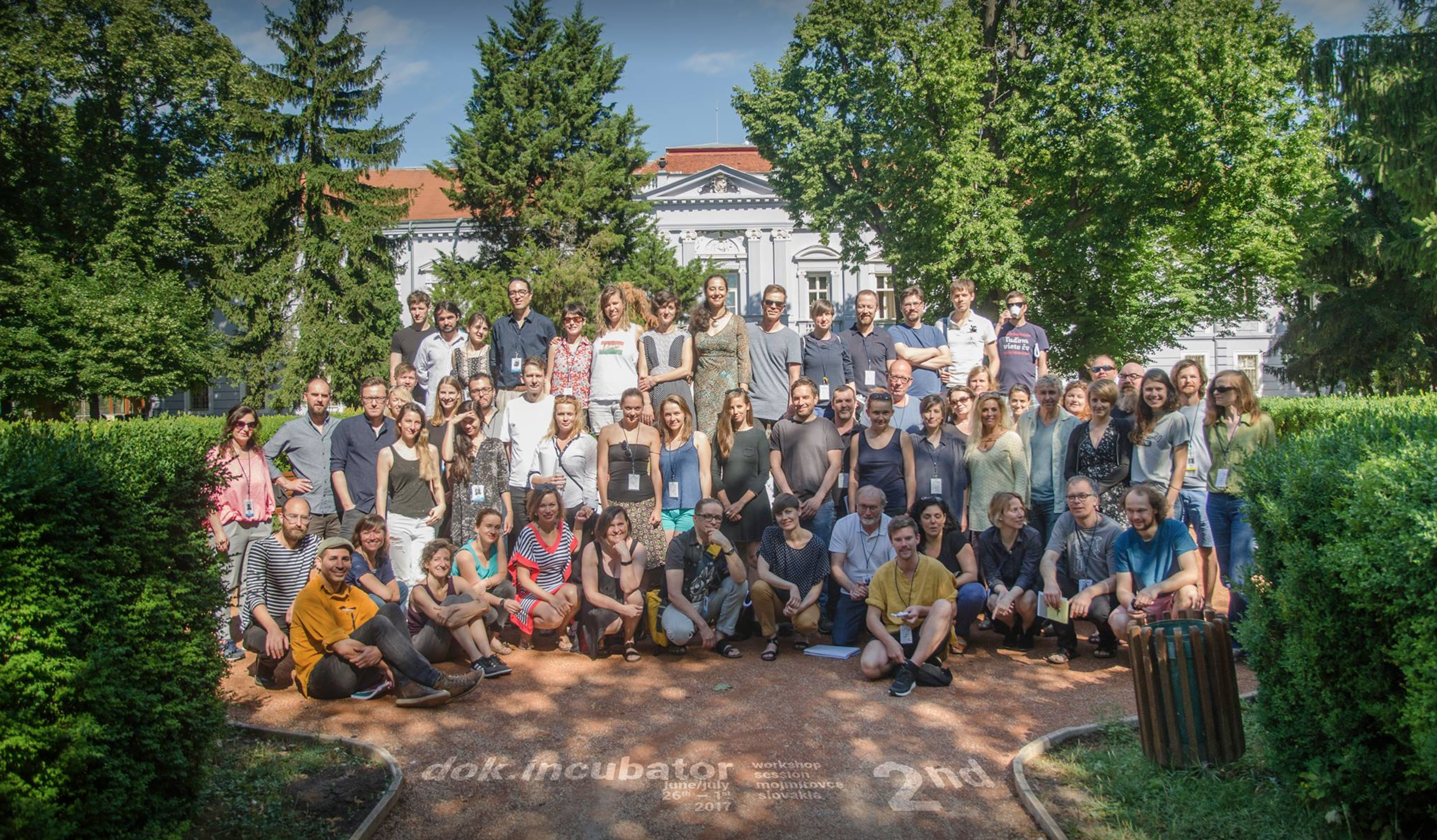
We are currently at the 2nd Workshop Session of the Dok.Incubator 2017. During this second session, we are focusing on building specific marketing strategies, a proper distribution plan and expanding our international film market network.
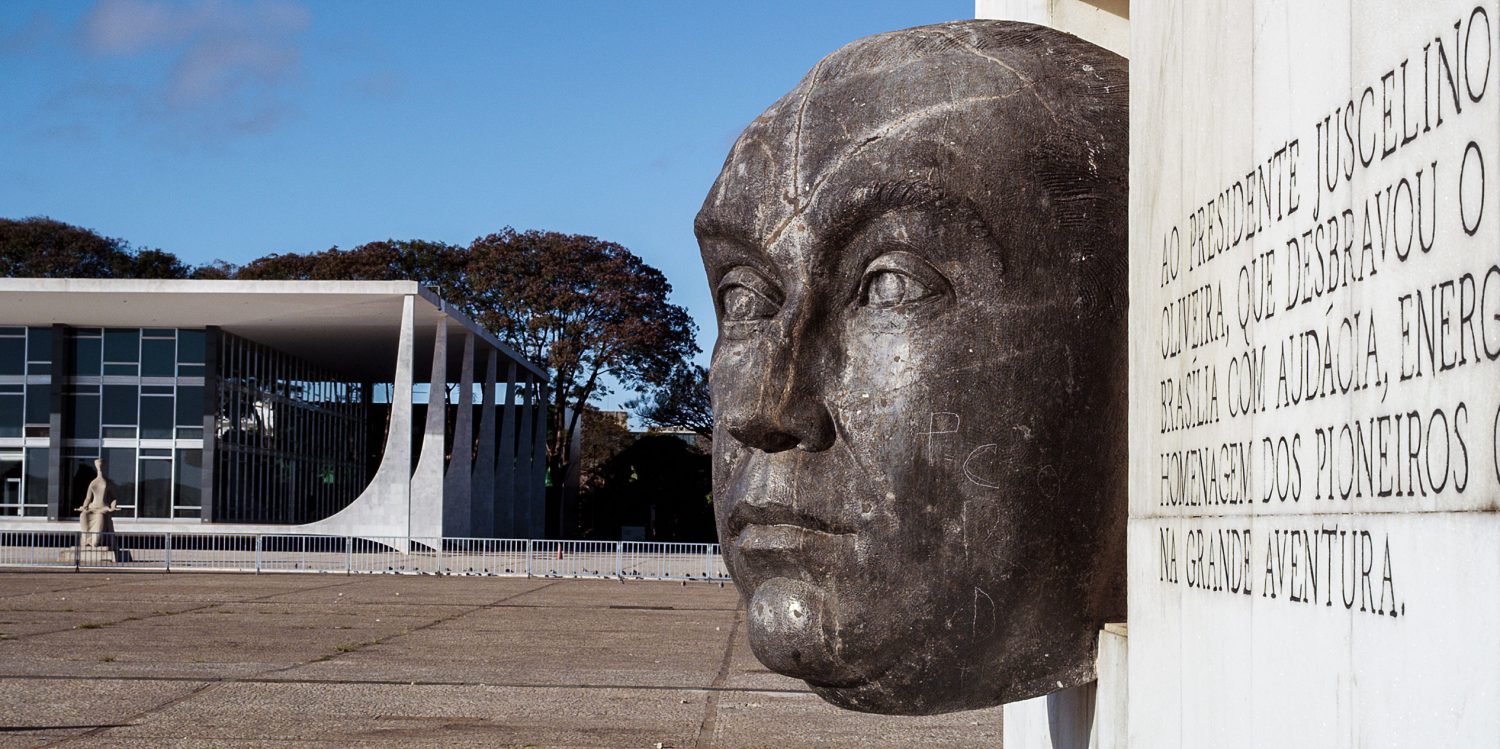

We are currently at the 2nd Workshop Session of the Dok.Incubator 2017. During this second session, we are focusing on building specific marketing strategies, a proper distribution plan and expanding our international film market network.
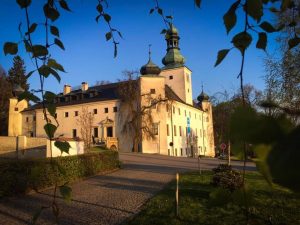
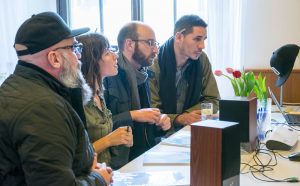
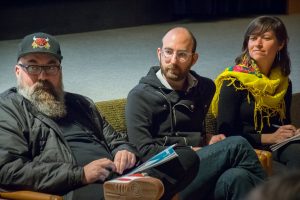
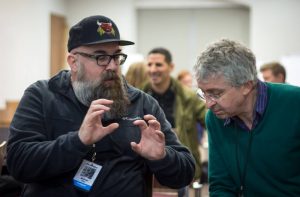
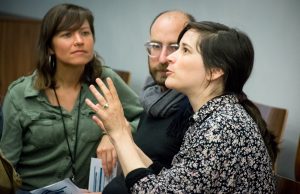
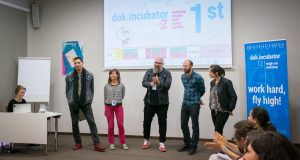
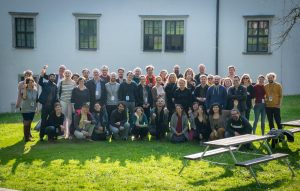
Our week at the incubator was packed with transformative meetings, generous resources, and critical discussion with other filmmakers and widely experienced tutors. We are looking forward to our next workshop in Mojmírovce, Slovakia where we will continue to expand our knowledge and grow our network. In all, we are very thankful to the kind and amazingly hard-working dok.incubator team that hosted us and guided us throughout the whole experience. Photos courtesy of dok.incubator and Andrew Benz.

We have been selected to the prestigious dok.incubator program this year. The workshop consists of three residential sessions in three different cities, all a week long and roughly two months apart. The first looks at the rough cut, the second assembles a fine cut and the third works towards locking, with an emphasis on marketing.
The unique Dok Incubator is an organization specializing in supporting documentary projects in the rough-cut stage. The focus of our participation will be working hard in the editing room, building a clever and tailor-made distribution plan and marketing strategy as well as meeting up with important international distributors.
Our timeline is:
1st – 6th May – Třešť, Czech Republic // ROUGH-CUT
26th June – 1st July – Mojmírovce, Slovakia // FINE CUT
18th – 25th of September – Malmö, Sweden // NEAR PICTURE LOCK
At this stage, we are actively fundraising to support our participation and cover expenses like flights accommodations and other associated fees. If you are interested in supporting our cause, please email us at fiscalsponsorship@ifpchicago.org, or donate directly to the project through PayPal by clicking the link below. All donations are tax deductible.
Do you have extra frequent flyer miles? We are accepting donations of frequent flyer miles on any airline that flies to Brazil (Mileage Plus, AAdvantage, SkyMiles, etc.) If you would like to donate miles, please contact us directly at team@ultrabrasilia.com.
All donors will receive a special THANK YOU in the film credits, as well as an advance copy of the film.
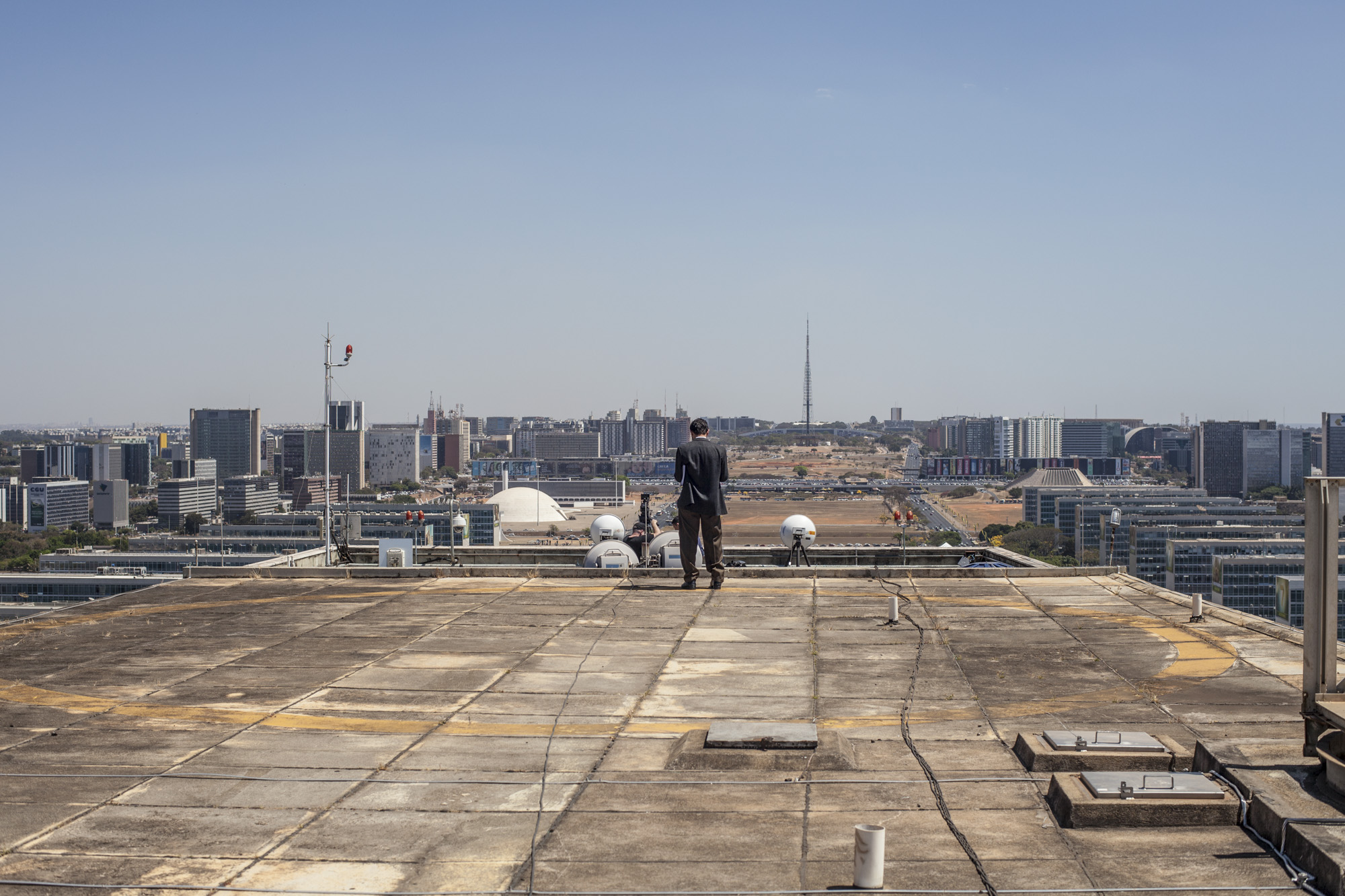
Why Make This Film Now?
Being a filmmaker today means something very different than it did a few years ago. Our current political and social climate is arguably the most divisive, chaotic, and turbulent period that anyone of our generation or younger has ever experienced in this country. As the United States of America collectively struggles to come to terms with the current political regime, we find essential to reveal and question how structures of power are constructed and performed. To that end, we have committed ourselves to teasing out the relationships between social and class systems, myth-making and nationalism, the state and its cult-like powers. There are many historical and cultural similarities between the United States of America and Brazil. Among one of the most prominent ones is that both countries, in spite of their political instabilities, reinforce the status quo through architecture (whether border walls or frontier outposts) that enable surveillance and strict regulations of urban space.
Brasília’s power and iconic status was solidified through its carefully crafted mythology as a utopian city and the promise it represented to Brazilians at the time of its founding. Although the state has successfully amassed vast economic power, Brasília is just like the rest of urban Brazil: surrounded by enormous slums, supported by poor migrant workers, and plagued by long-standing corruption. The lessons inherent to the story of Brasília, historically defined by its incipient democratic movement, have implications worldwide as nations reconcile globalization and their own economic insecurity. Structures that once represented progress, order, justice, equality and freedom, are once again being considered sanctuaries for demagogues aiming to preserve their dubious positions, and implementing policy in the name of progress and development for the benefit of the ruling elite.
One need not look further than today’s news to understand the topicality of the content of “A Machine to Live In.” With President Dilma Rousseff having been impeached after sustained protests in August of 2016 and current President Michel Temer now under scrutiny with the word “impeachment” being floated again, Brazil’s democracy remains fragile. Through casting new light on the dynamic story of the city, where of course these impeachments are now taking place, we are offering a new, historically informed perspective on this challenging moment.
Brasília’s story is also resonant with situations around the globe. As cities continually seek to modernize, many of the same mistakes are being made. Brasília teaches us that no urban environment can be converted into a futuristic monument through large-scale injections of technology or physical infrastructure meant to smooth tensions and produce harmony. There are always unforeseen repercussions. Yet, we continue to hear the distorted echo of failed utopias; the idealism of “smart cities” persists like déjà vu. As with Brasília’s construction history, we hear of thousands of migrant workers, often badly treated and manipulated with false promises, to build mega-cities in places like Saudi Arabia, Qatar, China, and many other urban spaces planned from the top-down visions of the government officials.
Our view, however, is not that utopian projects should not be attempted at all. Rather the opposite: that there is a profound need to inspire more utopian imagination. To build worlds beyond the paradigms of exploitation and corruption, and to once again engage the questions of a collective vision of the future.
Sebastian Alvarez
“We should dare to enact the impossible. We should rediscover how to not imagine but enact, utopia. The point is not about planning utopias, the point is about practicing them. And I think this is not a question of ‘should we do it, or should we simply persist with the existing order?’ It’s much more radical. It’s a matter for survival. The future will be utopian or there will be none.”
This year, we worked with the Graham Foundation to present a special screening and presentation of our work-in-progress during the inaugural Chicago Architecture Biennial, North America’s largest international survey of contemporary architecture.
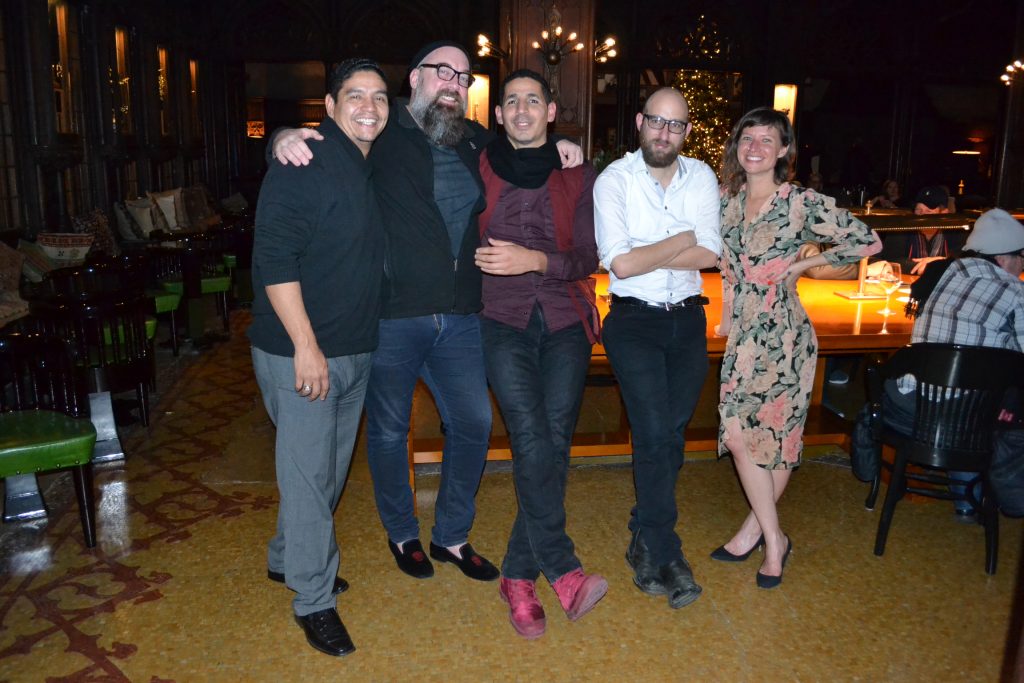
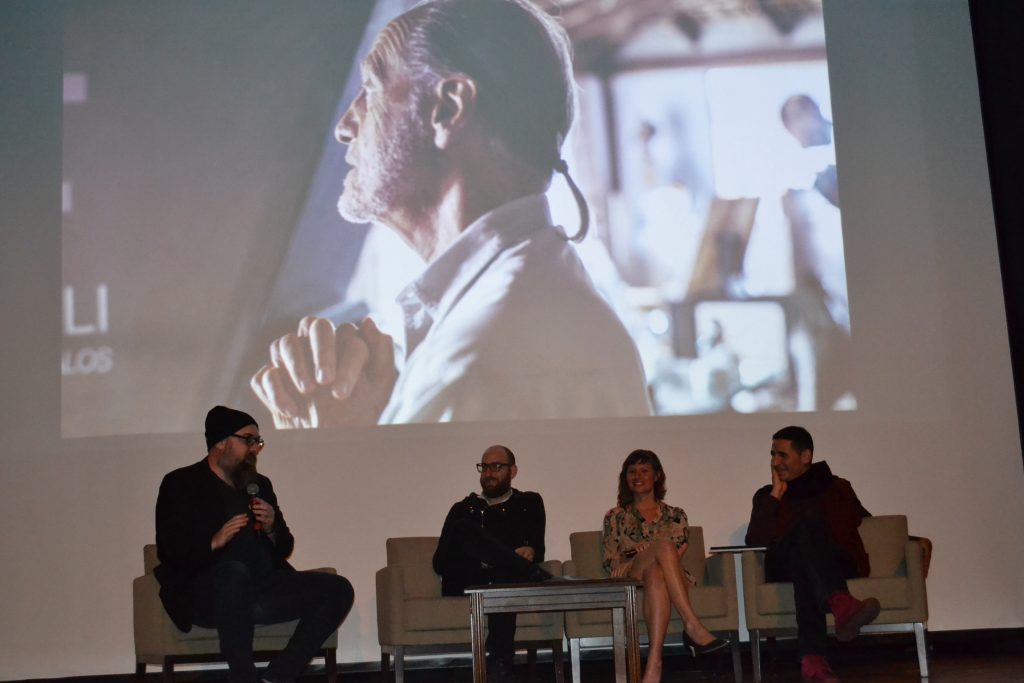
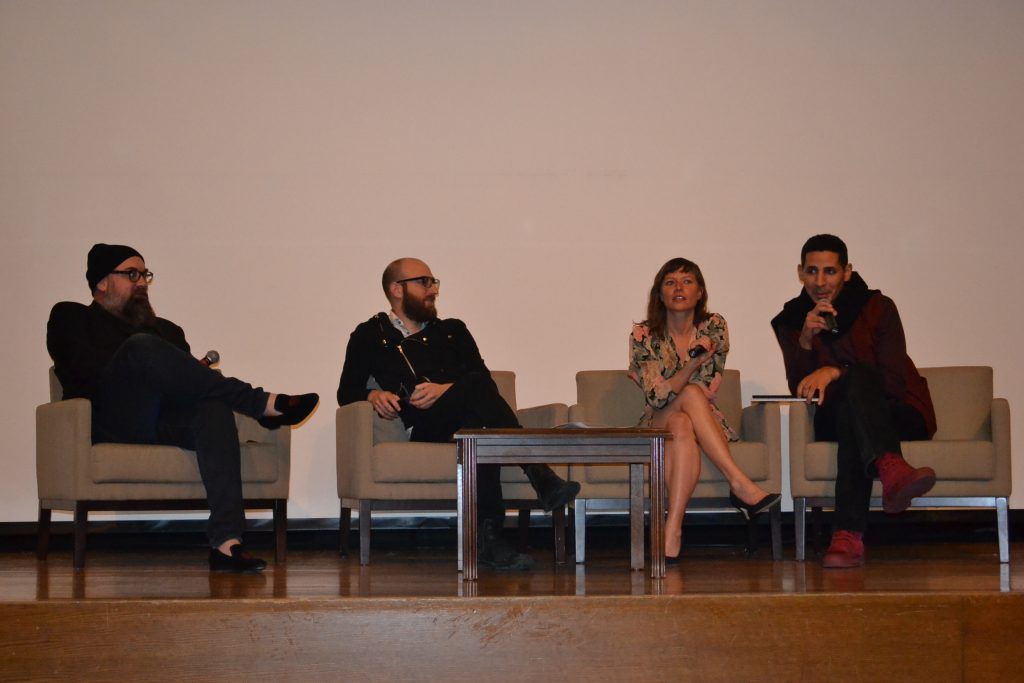

IVA RADIVOJEVIC is an award winning filmmaker based in Brooklyn, NY. She spent her early years in Yugoslavia and Cyprus before settling in NYC. Her films explore the theme of identity, migration and belonging. Iva’s films have screened at numerous film festivals including SXSW, Rotterdam IFF, Human Rights Watch, HotDocs, Museum of Modern Art (MOMA), and were broadcast PBS, Documentary Channel as well as the New York Times Op-Docs. Her collaborative film Matthew 24:14 won the 2011 International Documentary Challenge competition for Best Director, Best Film and Best Use of Genre. She is the recipient of the 2015 Guggenheim Fellowship, 2012 Princess Grace Special Project Award, 2011 Princess Grace Film Fellowship and a participating talent at the 2012 Berlinale Talent Campus. Iva was named one of 25 New Faces of Independent Film of 2013 by Filmmaker Magazine. Her debut feature length documentary “Evaporating Borders,” has won numerous awards worldwide, was recently nominated for an International Documentary Association (IDA) Award, a Cinema Eye Honors Spotlight Award and received One World Media Award for Refugee Reporting.
Her film, “Evaporating Borders” develops a sweeping visual essay on global restrictive attitudes toward migrating populations. Guided by the filmmaker’s curious eye and personal reflections, the film dissects the experience of asylum seekers in Cyprus. Through a series of vignettes, it poetically weaves themes of migration, tolerance, identity, and belonging.
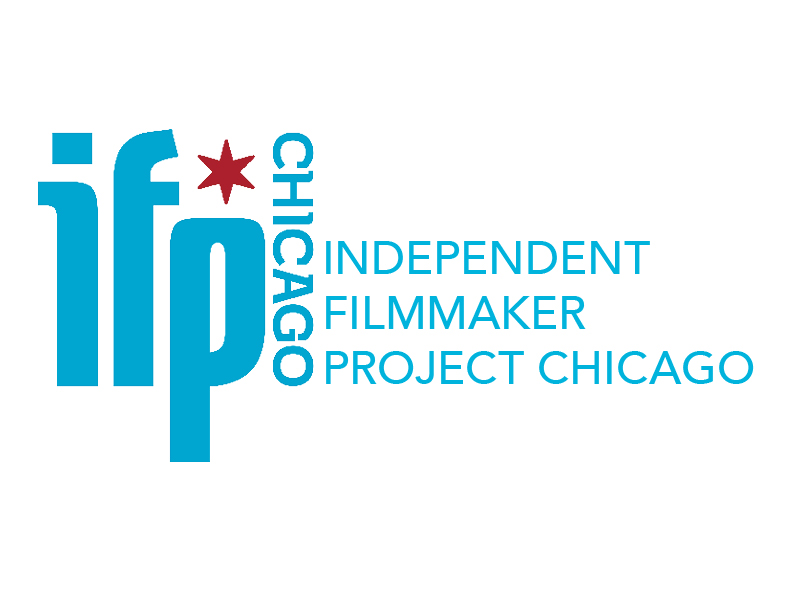
Spotlight on Documentaries is an extremely successful and viable forum for U.S. and International buyers, sales agents, and financiers to meet with filmmakers with new documentary feature and serialized projects. Presenting 60+ documentary projects ranging from those at an early financing stage (i.e. early development or in production) to those nearing completion (i.e. in post-production or at a rough cut stage), this section includes emerging and established filmmakers working in non-fiction.
The filmmaking team took part in pre-scheduled one-on-one meetings with potential financing and distribution partners, speed dating meetings with festival programmers, attended private documentary events, and enjoyed exclusive access to the Filmmaker Conference.
We are very excited to announce that “A Machine to Live In” is officially an IFP: Chicago Fiscally Sponsored Projects. We can now accept tax deductible donations through IFP’s 501c3 Nonprofit status.
IFP Chicago is a non-profit organization committed to the idea that independent film is an important art form and a powerful voice in our society. We provide information, community, education and professional development opportunities for independent filmmakers, industry professionals and independent film enthusiasts. We encourage quality and diversity in independent production and assist filmmakers at all levels of experience in realizing their unique vision.